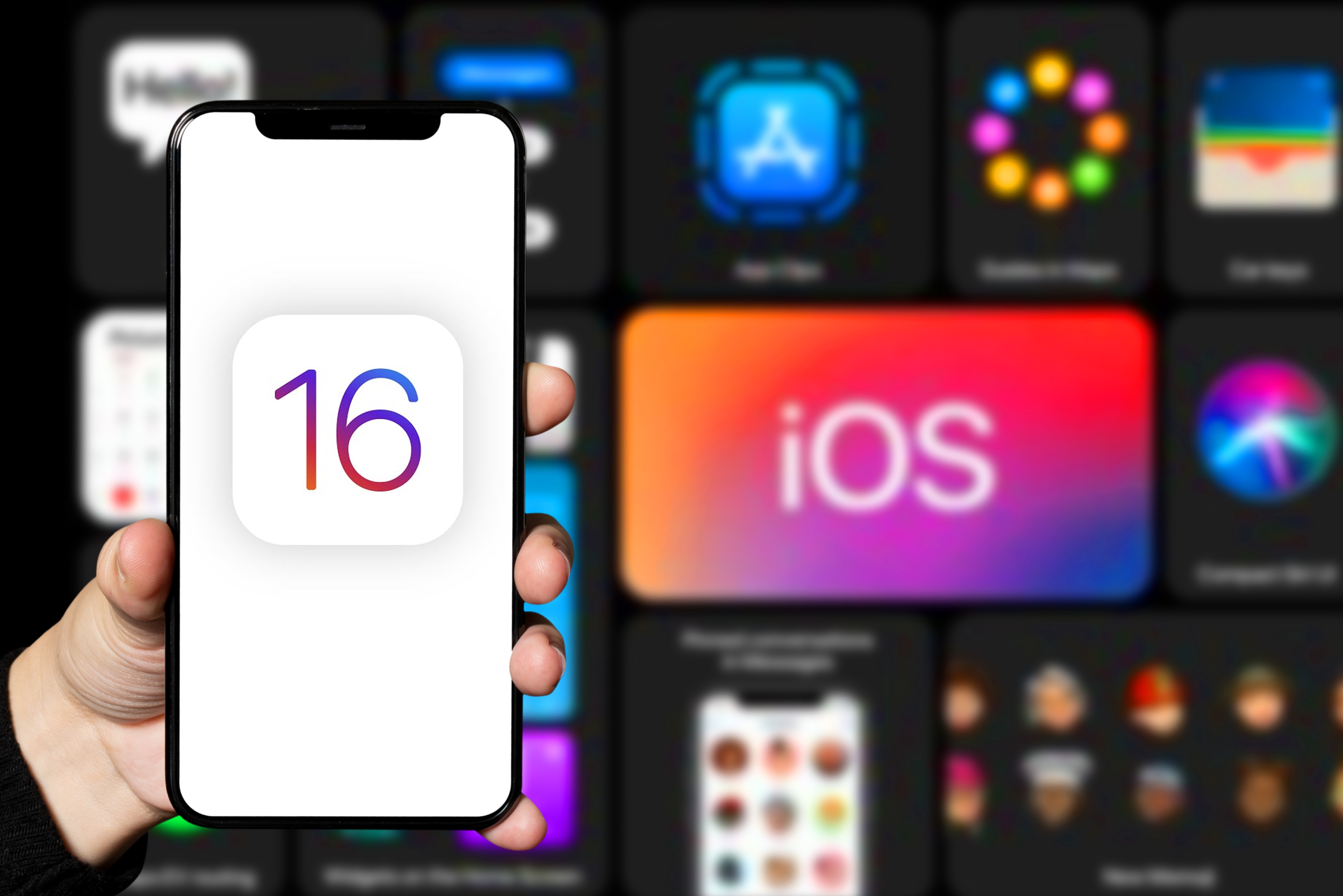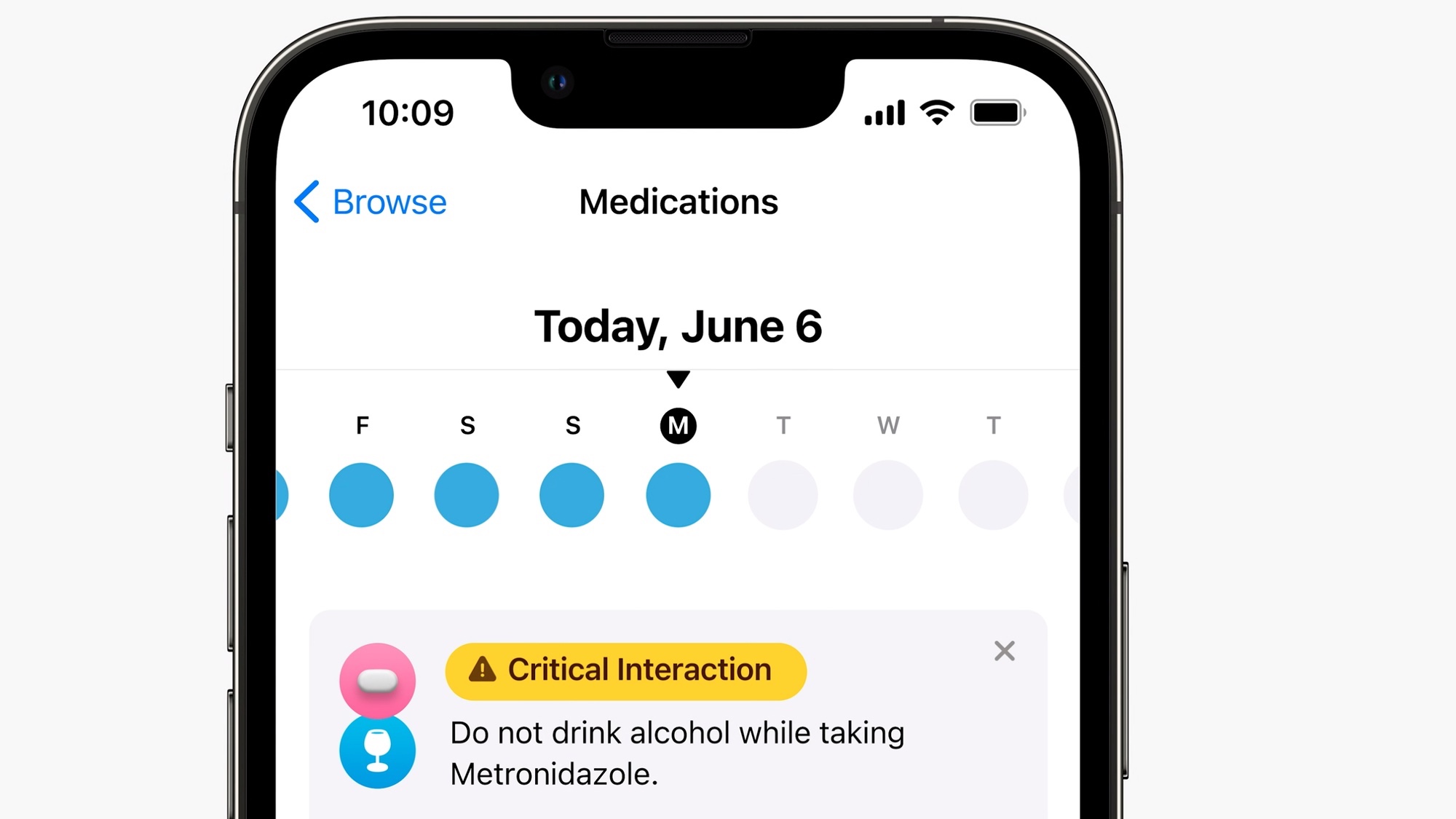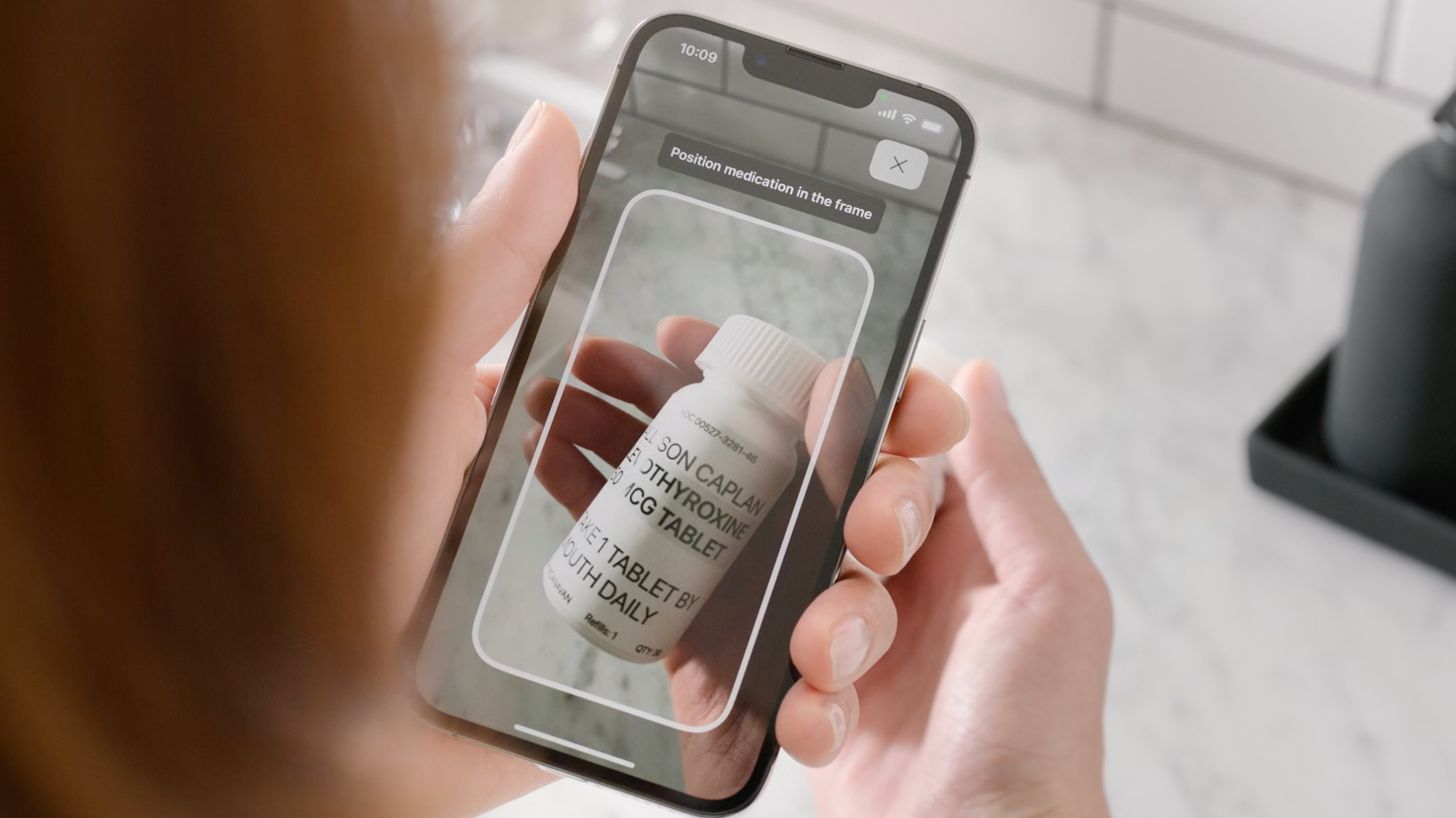This is the one iOS 16 feature I can’t wait to use
Medications may not be flashy, but it sounds extremely useful

I don't care to confirm how old I am, but let's just say I've been getting an uptick in mail from AARP recently. And like many of my fellow old men — particularly those of us who probably should have led healthier lives when we were younger men — I'm supposed to take a couple of prescription medications each day.
I'm also someone who in the past years got more serious about addressing mental health. That has led to a better outlook on life with more productive coping strategies, but it also means an additional prescription, adding to the number of pills I'm required to gulp down on a daily basis.
So you can imagine how I felt watching Apple's iOS 16 preview when company executives got to the updated Health app and mentioned that a new Medications feature is coming in the fall along with the rest of the iOS 16. Yes, the customizable lock screen looks nice and I'm as eager to edit out typos in iOS 16 Messages as the next person. But given the prescription regimen my doctor has me on, Medications figures to be the iOS 16 feature I use the most.
Put another way, Medications in iOS 16 figures to be a quite literal life-saver.
iOS 16 Medications: How it works
iOS 16 lets me set a specific reminder time and then bugs me at that specified moment to take the pills required for me to keep living. That's a pretty valuable enhancement.
We're still waiting for the public beta of iOS 16, which is set to come out in July, to dive into all of the new features coming to the iPhone, Medications included. But based on Apple's WWDC 2022 preview and listening to people who's installed the iOS 16 developer beta, we have some broad idea of how Medications within the Health app will work.
The primary purpose of the Medications feature in Health is to keep a record of the medications you're taking — both prescriptions and over-the-counter medicine. You can also have the app send you notifications reminding you to take your pills.
I can't stress enough how big a deal that is for me. I like to take my medications with breakfast, but since my work day starts fairly early on, I don't always eat at a fixed time. If work starts piling up, I might skip breakfast altogether and completely skip over taking my prescribed medicine as part of the bargain.
Get instant access to breaking news, the hottest reviews, great deals and helpful tips.

iOS 16 figures to change that by having me set a specific reminder time and then bugging me at that specified moment to take the pills required for me to keep living. That's a pretty valuable enhancement.
Yes, I could set up something in the Reminders app to nag me just as easily. But the value in Medications is that it will not only remind you to take pills, it will also log when you did. That way, you've got data you can share with your doctors or even trusted family members. (Yes, Medications can be included in the Health app's Health Sharing feature, which will see an update of its own in iOS 16.)
iOS 16 Medications: Getting started
For Medications to serve its primary function, it needs to be easy to set up, and from what I can tell, that's exactly the system Apple has set out to design. Based on the iOS 16 demo, you just start typing the name of the medication you're taking, and the Health app will start to auto-populate with suggestions for you to tap on to select. In a clever way to tap into the iPhone's smart camera capabilities, you can also take a photo of the drug's packaging to import info on what you're taking.

Another thing I spotted during the iOS 16 Medications preview: you're able to pick different shapes and colors for the medicine you enter in the app. Potentially, this could give a visual cue to older users or their care givers about which pill to take at the proper moment.
There's another valuable aspect to having all your medication data stored in a dedicated place — you can also find out about potential drug interactions. They're broken down into critical, serious and moderate, and can warn not only about drug-drug interactions, but also when factors like alcohol and tobacco pose a risk.
iOS Medicines: Modifications
Basically, Medications fits perfectly within the Health mission statement, giving you a wealth of trackable data right there on your phone. And since Medications is part of watchOS 9, too, it's available from your Apple Watch as well, if you choose to wear one.
I won't pretend that Medications has a big gee-whiz factor or that it's a feature you'll be showing off to impress onlookers. But it is something that addresses a rather critical part of my life. And with estimates indicating that some 131 million people in the U.S. are taking at least one prescription drug, I imaging Medications will come in handy for a lot of people who upgrade to iOS 16 later this year.
You can read more about how the iPhone and Apple Watch are becoming vital health devices with features like iOS 16 medications the as this in the Health app.
Philip Michaels is a Managing Editor at Tom's Guide. He's been covering personal technology since 1999 and was in the building when Steve Jobs showed off the iPhone for the first time. He's been evaluating smartphones since that first iPhone debuted in 2007, and he's been following phone carriers and smartphone plans since 2015. He has strong opinions about Apple, the Oakland Athletics, old movies and proper butchery techniques. Follow him at @PhilipMichaels.
 Club Benefits
Club Benefits






